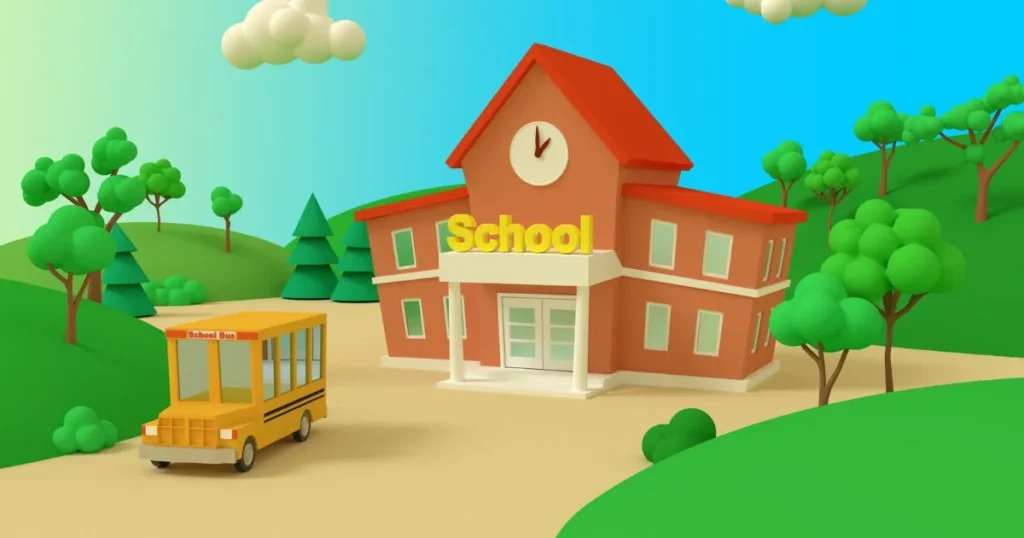The government pays for roads, schools, and emergency services through a variety of methods, including taxes, fees, and government funding programs.
These essential services play a crucial role in our daily lives and contribute to the overall growth and development of society.

In this article, we will explore the various ways in which the government funds these services and the impact they have on our communities.
Importance of Roads, Schools, and Emergency Services
Before delving into the different methods of funding, let us first understand why these services are essential for a well-functioning society. Roads provide us with safe and efficient transportation to get to work, school, and other places. They also facilitate the movement of goods and services, contributing to economic growth.

Similarly, schools play a critical role in shaping the future generation by providing education and skills necessary for their personal and professional development. They also promote social cohesion and help reduce poverty through equal opportunities for education.
Emergency services such as police, fire departments, and ambulance services ensure our safety and well-being in times of crisis. They are crucial for maintaining law and order, responding to accidents and disasters, and providing medical assistance.
Now that we understand the importance of these services let us explore how they are funded.
Taxes
One of the primary ways in which the government pays for roads, schools, and emergency services is through taxes. Taxes are mandatory fees imposed by the government on individuals and businesses based on their income, property, and transactions.

The revenue collected from taxes is then used to fund various public services, including roads, schools, and emergency services.
There are several types of taxes that contribute to funding these essential services:
1- Income taxes:
These are taxes imposed on individuals and businesses’ income or profits. The government uses a progressive tax system, which means that those who earn higher incomes pay a higher percentage of taxes.
2- Property taxes:
Property taxes are based on the value of properties owned by individuals and businesses. These include homes, land, and commercial buildings. A portion of these taxes is allocated towards funding for schools and emergency services in the local area.
3- Sales taxes:
Sales taxes are levied on goods and services purchased by individuals. A percentage of these taxes goes towards funding roads, as well as other public services such as healthcare and public libraries.
4- Gasoline taxes:
Gasoline taxes are imposed on the sale of gasoline and other motor fuels. These taxes are used to fund transportation infrastructure, including roads and highways.
Fees
In addition to taxes, the government also collects fees for specific services that require a direct payment from the user. These include tolls for using certain roads, tuition fees for attending public schools or universities, and ambulance fees for medical services.
Fees are typically used to supplement the funding from taxes and are not the primary source of revenue for these services. They are also often based on the principle of user pays, where individuals who use a service pay a fee for that specific service.
Government Funding Programs
Aside from taxes and fees, the government also provides direct funding for roads, schools, and emergency services through various programs. These programs aim to distribute funds fairly and efficiently, targeting areas that require additional support.
1- Grants:
Grants are a form of financial assistance provided by the government to organizations or individuals for specific purposes. For example, schools may receive grants to improve their facilities or purchase new equipment. Emergency services may also receive grants to upgrade their equipment, train staff, or implement new programs.
2- Public-Private Partnerships:
Public-private partnerships (PPPs) are a collaboration between the government and private companies to fund and manage public services. In these partnerships, the government provides partial funding, while private companies contribute financial resources and expertise to deliver essential services more efficiently.
PPP projects for roads involve building or maintaining infrastructure such as highways, bridges, and tunnels. For schools, PPPs may include constructing new school buildings or providing technology for classrooms. In emergency services, PPPs may involve outsourcing medical services or equipment to private companies.
Impact of Government Funding on Society
The government’s funding of roads, schools, and emergency services has a significant impact on society in several ways:
1- Economic Growth:
Funding for roads and transportation infrastructure is crucial for economic growth. Efficient transportation networks allow businesses to transport their goods and services more efficiently, reducing costs, and increasing productivity.
Similarly, investments in education through funding for schools provide individuals with the necessary skills to enter the workforce and contribute to the economy’s growth.
2- Social Equality:
Government funding for schools promotes social equality by providing equal access to education for all, regardless of income or background. It also helps reduce poverty by giving individuals the opportunity to break the cycle of poverty through education.
Emergency services are also essential for social equality as they provide assistance and protection to all citizens in times of crisis, regardless of their status.
3- Quality of Life:
Funding for roads, schools, and emergency services all contribute to a better quality of life for citizens. Well-maintained roads make commuting easier and safer, while well-funded schools provide access to quality education and promote personal development.
Emergency services ensure the safety and well-being of citizens during times of crisis, improving their overall quality of life.
Conclusion
In conclusion, government funding for roads, schools, and emergency services is crucial for a functioning society. Through taxes, fees, and government programs, these essential services are funded to ensure the safety, well-being, and economic growth of citizens.
It is vital for governments to continue investing in these services to promote social equality and improve the overall quality of life for all individuals.
So let us all recognize the importance of paying our taxes and fees towards building a better society for ourselves and future generations.





